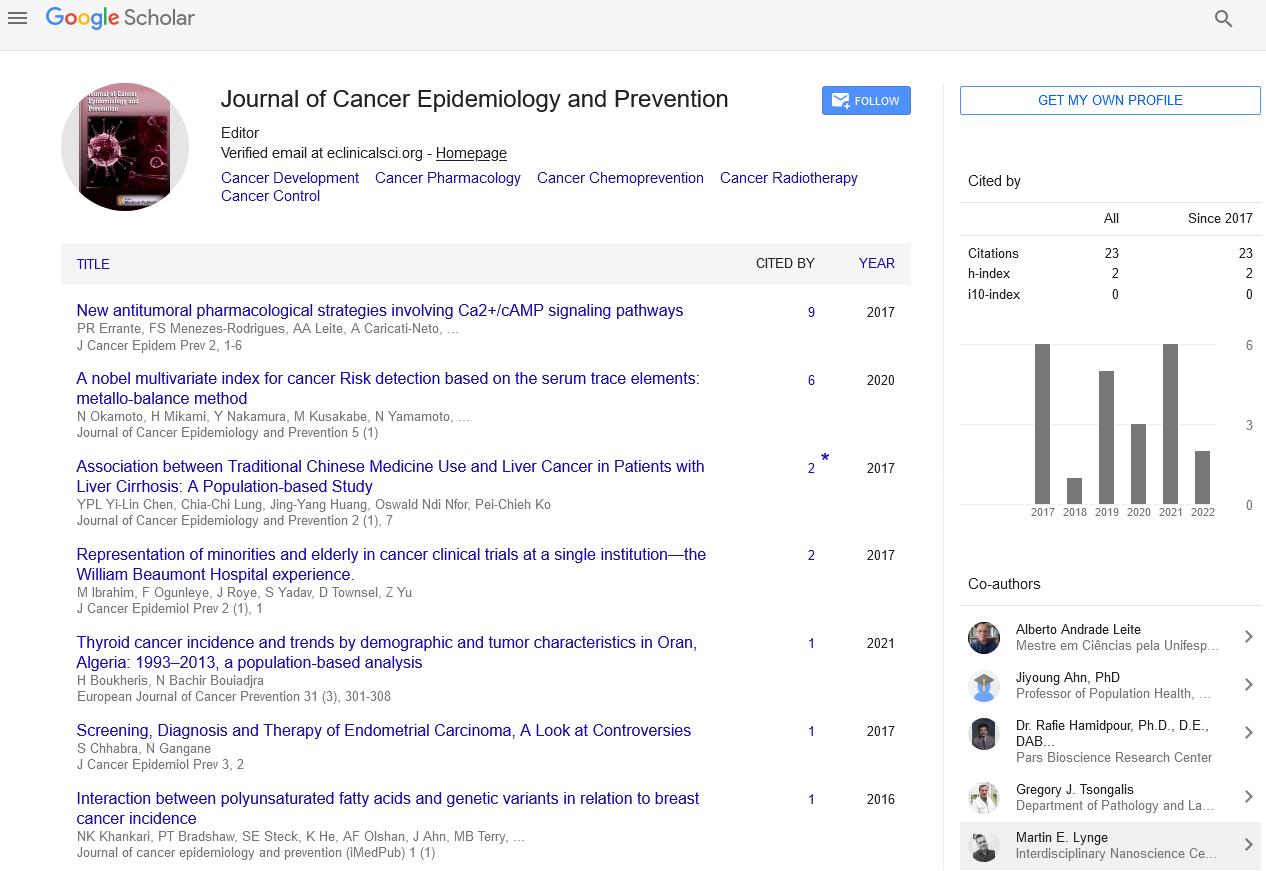Short Communication - (2024) Volume 9, Issue 3
AI-Enhanced PET Scans in India: A New Era of Precision Diagnostics
Aoi Yamada*
Department of Pharmaceutical Sciences, Kyoto University, Japan
*Correspondence:
Aoi Yamada,
Department of Pharmaceutical Sciences, Kyoto University,
Japan,
Email:
Received: 02-Sep-2024, Manuscript No. IPJCEP-24-21215;
Editor assigned: 04-Sep-2024, Pre QC No. IPJCEP-24-21215 (PQ);
Reviewed: 18-Sep-2024, QC No. IPJCEP-24-21215;
Revised: 23-Sep-2024, Manuscript No. IPJCEP-24-21215 (R);
Published:
30-Sep-2024, DOI: 10.36648/IPJCEP.24.09.21
Introduction
The integration of Artificial Intelligence (AI) into medical
imaging, particularly Positron Emission Tomography (PET)
scans, is transforming the landscape of healthcare in India. As
the country grapples with a growing burden of chronic diseases,
including cancer and cardiovascular conditions, AI-enhanced
PET scans are emerging as a critical innovation that promises
to improve diagnostic accuracy, streamline workflow, and
ultimately enhance patient outcomes.
Description
AI technology, especially machine learning algorithms, is
revolutionizing PET imaging by enhancing the interpretation
and analysis of scan data. These advancements are leading to
several significant improvements:
Hormone therapy has emerged as a cornerstone in the treatment
of hormone-sensitive tumors, offering targeted and effective
treatment options with favourable outcomes for patients.
By disrupting hormonal signalling pathways critical for tumor
growth and proliferation, hormone therapy has revolutionized
cancer treatment and improved survival rates for individuals
with hormone-sensitive breast, prostate, and ovarian cancer.
Continued research and advancements in hormone therapy
techniques hold promise for further optimizing treatment
outcomes and expanding the utility of hormone therapy in
cancer care. AI algorithms can analyze PET scan images with
remarkable precision, identifying subtle patterns and anomalies
that might be missed by human radiologists. This increased
accuracy is crucial for early detection of diseases, particularly in
cancer diagnostics where early intervention can be life-saving.
AI can enhance the quality of PET images by reducing noise and
artifacts. This results in clearer images that are more useful
for accurate diagnosis and treatment planning. AI tools can
process and analyze large volumes of imaging data much faster
than traditional methods. This not only accelerates diagnostic
workflows but also reduces the burden on radiologists, allowing
them to focus on more complex cases. AI systems can automate
the quantification of PET scan data, such as measuring tumor
volume or assessing the uptake of radiotracers. This automation
provides more consistent and reproducible results, which
are crucial for tracking disease progression and response to
treatment. The adoption of AI-enhanced PET scans in India is
addressing several key challenges in the country’s healthcare
system: India faces a significant disparity in access to advanced
medical technologies, particularly in rural and underserved
areas. AI-driven PET scan systems can help bridge this gap by
enabling remote diagnosis and consultation, thus expanding
access to high-quality imaging. With a shortage of trained
radiologists, AI tools provide essential support by assisting in
image interpretation and reducing the workload. This helps to
mitigate the impact of the radiologist shortage and improves
overall diagnostic capacity. Handling sensitive medical data
requires stringent measures to ensure patient privacy and
data security. As AI systems handle large amounts of data, it
is crucial to implement robust security protocols to protect
patient information. The adoption of AI in healthcare raises
regulatory and ethical questions regarding the validation and
approval of AI algorithms. Ensuring that these tools meet
rigorous standards for accuracy and safety is essential for their
successful implementation. Effective integration of AI tools into
existing clinical workflows requires training for radiologists and
other healthcare professionals. Ensuring that these tools are
user-friendly and seamlessly integrate with current systems is
key to maximizing their benefits [1-4].
Conclusion
In conclusion, AI-enhanced PET scans represent a transformative
development in medical imaging, offering a host of benefits that
are particularly relevant to the Indian healthcare landscape.
With continued innovation and thoughtful implementation,
these advancements have the potential to significantly improve
diagnostic accuracy, accessibility, and efficiency in the country.
Acknowledgement
None.
Conflict Of Interest
None.
References
- Wang J (2018) Tumor microenvironment: Recent advances in various cancer treatments. Eur Rev Med Pharmacol Sci 22(12): 3855-3864.
[Crossref] [Google Scholar] [PubMed]
- Graham TA (2017) Measuring cancer evolution from the genome. J Pathol 241(2): 183-191.
[Crossref] [Google Scholar] [PubMed]
- Mullard A (2020) Addressing cancer's grand challenges. Nat Rev Drug Discov 19(12): 825-826.
[Crossref] [Google Scholar] [PubMed]
- Shah NN, Fry TJ (2019) Mechanisms of resistance to CAR T cell therapy. Nat Rev Clin Oncol. 16(6):372-385.
[Crossref] [Google Scholar]
Citation: Yamada A (2024) AI-Enhanced PET Scans in India: A New Era of Precision Diagnostics. J Cancer Epidemiol Prev. 9:21.
Copyright: © 2024 Yamada A. This is an open-access article distributed under the terms of the Creative Commons Attribution License, which permits unrestricted use, distribution, and reproduction in any medium, provided the original author and source are credited.

